ADVICE on how to reverse declines in soil health and water quality within a profitable farming business was shared to industry experts at the 2018 GWCT’s Allerton Project Soil and Water Conference.
Farmers, researchers and policymakers gathered over two days (13-14 February) to discuss their findings and encourage healthy soils, clean water and biodiversity on farmland.
The conference highlighted the effect we have had on this fundamental resource and the importance of soil, not just as the essential component for farming and food production, but the way we live our lives and utilise the land. In the UK, 17% of arable soil already show signs of erosion, 40% is considered at risk and this has an impact not only on our land, but our water too.
The opening day of the conference, chaired by Professor Keith Goulding, Sustainable Soils Research Fellow at Rothamsted Research, focused on delivering research into practice, with engaging talks on catchment level conservation, flood management and an overview of the Allerton Project.
Professor Chris Stoate, Allerton Project Head of Research provided a brief historical background to the collaborative soil and water research at Loddington.
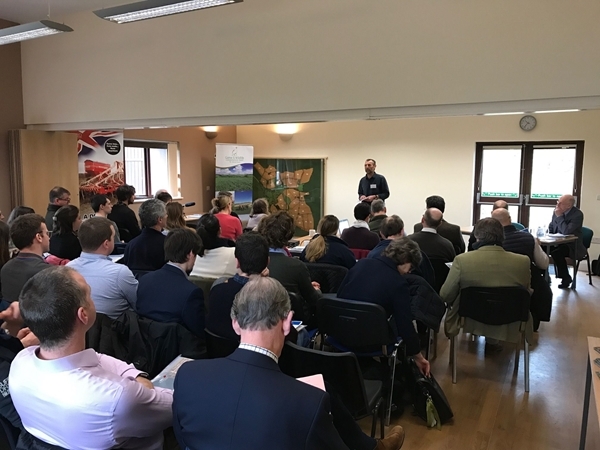
Jane Rickson highlighted how research at Cranfield University, where she is Professor of Soil Erosion and Conservation, and GWCT’s Allerton Project, continues to provide long-term, robust scientific evidence on soils and soil health, at field, farm and catchment scale.
These thoughts are reiterated in her foreword in GWCT’s new book - The Soil and Water Balance, The Science Behind Soil Friendly Farming, which was launched at the event.
Professor John Quinton of Lancaster University gave an insight of how best to manage agricultural land to reduce flooding and gave a moving tribute to his colleague Professor Martyn Silgram, who was set to talk at the conference but sadly passed away a few days before the event.
Allerton Project soil scientist, Dr Felicity Crotty, followed her talk on the importance of cover crops and the lessons that earthworm sampling can provide, by treating guests to a practical demonstration out on the farm.
Day two focused on the farmers, with Richard Barnes, Mike Hambly, Will Armitage and Robert Craig outlining how they manage soils on arable and grassland as well as the benefits and challenges they face.
Phil Jarvis, head of farming at the Allerton Project, outlined the challenges of managing a heavy clay farm. He looked at how cover crops help to improve his soil and the benefits of organic additions.
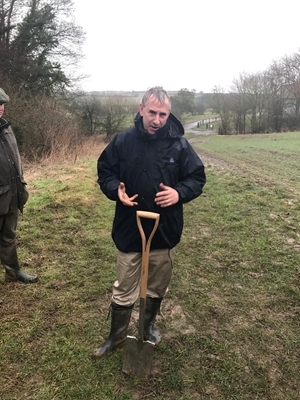 Dr Alastair Leake, director of policy at Allerton Project, said: “It was a great turnout and I am delighted that so many people decided to come to this quiet corner of Leicestershire for two days to learn about what we’ve been doing with soils for the past 15 years.
Dr Alastair Leake, director of policy at Allerton Project, said: “It was a great turnout and I am delighted that so many people decided to come to this quiet corner of Leicestershire for two days to learn about what we’ve been doing with soils for the past 15 years.
“What we tried to do is bring the real experts in the UK that have worked here at the Allerton Project to help us research soils and to bring into the mix some of the top farmers in the UK who want to learn about how to manage their soils better and make the environment better.
“We’ve achieved a great result in getting that mix between the two. There’s been a fantastic exchange, the researchers have been able to show their science and the farmers have asked questions.
“The main thing about doing this at the Allerton Project is we are able to take people out into the field, show them different soils, look at the cropping systems we are adopting and debate that around the actual matter we are talking about.”
The GWCT would like to thank Yara, Kings Crops, Syngenta and Dale Drills for their generous support in sponsoring the conference.
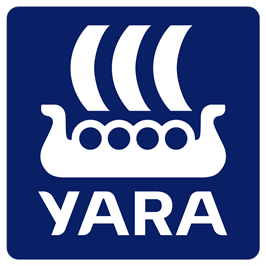
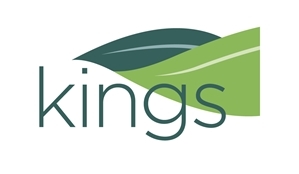


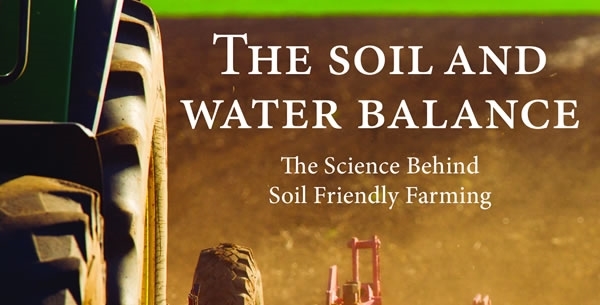
Get the inside track on soil and water research
We are delighted to announce the launch of our brand new book - The Soil & Water Balance.
Priced at just £9.95, this handy paperback provides the inside track on soil and water research.
Presented in a Q&A style, much like last year’s popular Moorland Balance, this 100-page book looks at the problems and solutions on topics ranging from erosion and contamination, to the impact on songbirds and other wildlife.
Combining years of research at the GWCT's Allerton Project demonstration farm with tens of external scientific papers, this is a fascinating study of how farming can adapt to the challenges it currently faces.
Buy now >
Notes to editors
The Game & Wildlife Conservation Trust – providing research-led conservation for a thriving countryside. The GWCT is an independent wildlife conservation charity which has carried out scientific research into Britain’s game and wildlife since the 1930s. We advise farmers and landowners on improving wildlife habitats. We employ more than 60 post-doctoral scientists and other research staff with expertise in areas such as birds, insects, mammals, farming, fish and statistics. We undertake our own research as well as projects funded by contract and grant-aid from government and private bodies.
For information, contact:
Eleanor Williams
Telephone: 07592 025476
Email: press@gwct.org.uk